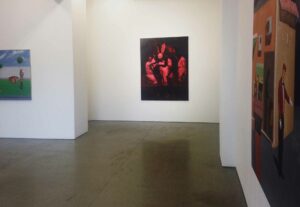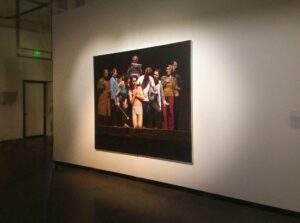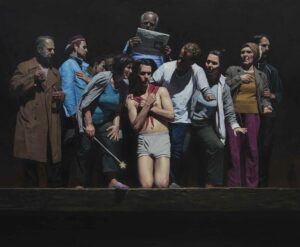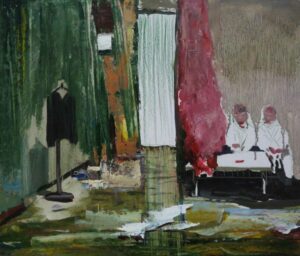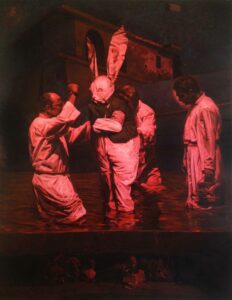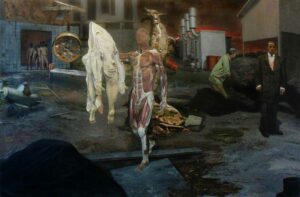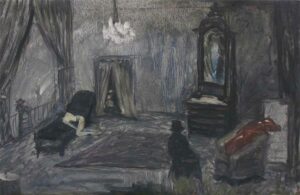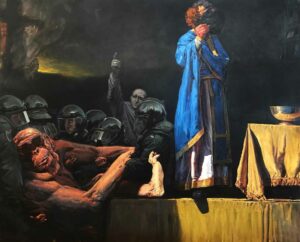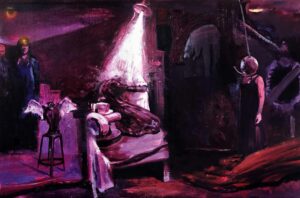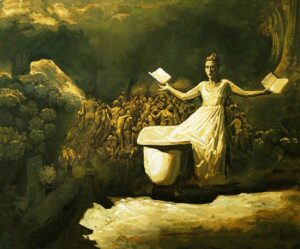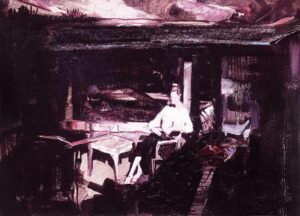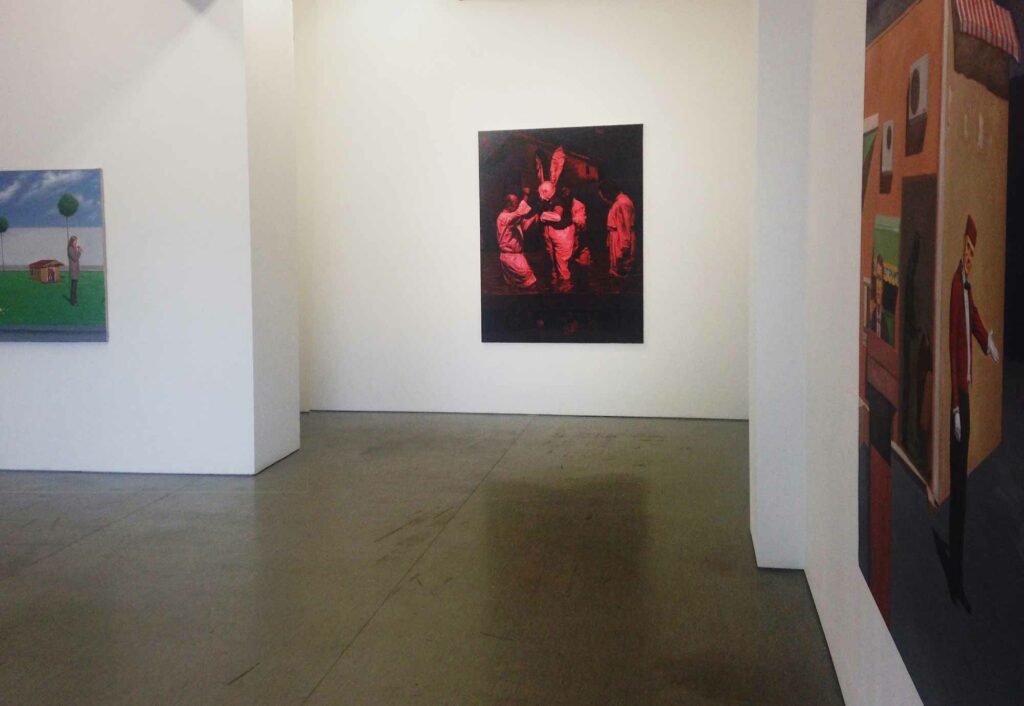
Surreal History Paintings
2012 - 2020
Exhibition, painting, interview
In the paintings of Enkelejd Zonja you find something that plays with alienation, precisely where – while redefining the nature of painting – is registered within the long pictorial tradition. We connect well with them since we find the points of capture, the references that lead us to the surrealism that came from de Chirico. But soon we discover that this is something else. An often bloody realism resides within them. And with it a cycle of violence is imposed on us: a violence in the waiting, a violence in the past. How do you paint violence? One answer is to paint its absence, to paint the world when violence is not there, but very possible and very close, or when it is no longer there, but just gone. In this past, not only as the last moment of time, but as the first trace on which immemoriality is built. It remains for us to ascertain a crime scene, from those that entice police fictions to invade our imagination, but in a different form. More than in the lines shown by Cindy Sherman, we return to Duchamp, to this alien to us: since they are given. But, at the same time, this since they are given insists on the plurality of data. And if we look at surrealism in the priority of the dream, and after it the dreamer, a subject in the tendency to start, in the tendency to wander, Zonja takes us exactly elsewhere. From the multiplied subject, to the group, to the crowd. The narrative flies towards the collective, in the dissolution of the subject, of the singularized being. It is no longer the violence of murder, it is no longer the black Dahlia, nor the dual singularity of the killer and the victim, but the war and the total dissolution of the singularity. What is given is the end of the subject and his creativity. We are in what follows, we are in the near future.
Can Albania be painted while being separated from Albania? Other presence, other referent, beyond land, beyond territory, literature, Kadare. With it we have the overlap of worlds. Or rather the presence of the lost world, below that of the present. With Kadare we are in contact with trace metaphysics, more with genealogy than with emancipation, or by eruption before everything collapses. This whole, of the world and of its appearance. This tension seems to be present in Zonja’s paintings, it gives them a contextualization, a visibility. And this visibility is encountered again in the alienation of the world and of literature. But if literature says, painting shows; is proving overlapping with what is said? Certainly not, we are already elsewhere. This leap to Kadare is made because he tells us about his land, Albania, and the overlap of a stopped and frozen world over an archaic world that is mixed thanks to the memoriality that penetrates through the cracks of the freezer. Zonja’s tableaus come after, when the stopped and frozen world is dissolved and there is nothing left but the double ruins of the frozen world and what eroded it inside. On the contrary, we know very well that our world and its saturation make us spectators of what has passed and what is being announced. In this contrast between the painted and the one who sees, something has to do with helplessness, ours, the impotence of a saturated world. We are powerless observer products, and what makes us powerless is what has happened, from which our ignorance separates us. Enkelejd Zonja gives us the reliefs of a battle from which we have emerged helpless victors, the reliefs of a generalized murder for which we are guilty of innocence.
Louis Uçiani
Enkelejd Zonja
Enkelejd Zonja, born in Fier, Albania in 1979, lives and work in Tirana. He studied painting at the National Academy of Fine Arts, Albania (2005 – 2008) and at the Royal University of Fine Art, Stockholm, Sweden (2008/2009). His awards and grants include: 1st Prize in the Most Innovative Idea competition by the World Bank, Albania (2007); special documentary by ARTE TV, Les images d’une dictature, DE/ FR in 2014; first prize at LiveArt competition in 2013; Fellow at Villa Romana, Florence in 2012; Finalist/Ardhje Award (2009 -10); three-month Residency, Tirana Institute of Contemporary Art in 2010; 2nd Prize in the International Award Onufri in 2009.

